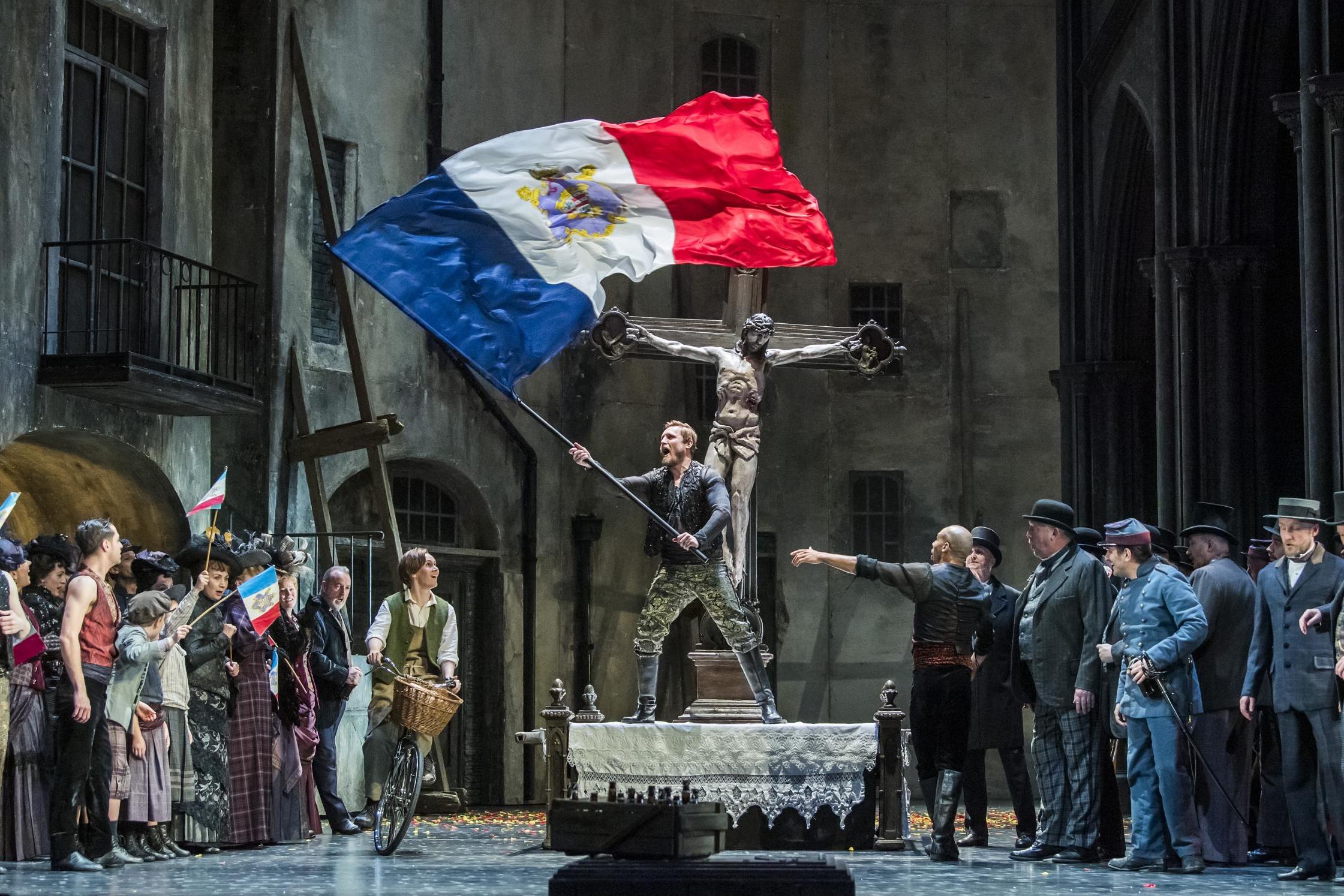Faust, Royal Opera House, London, review: A last-minute replacement masterfully integrates into the show
German soprano Mandy Fredrich, whose plane had touched down at Heathrow at a quarter past four, had just 170 minutes to get to Covent Garden, scramble into her costume and be inducted into her role

Your support helps us to tell the story
From reproductive rights to climate change to Big Tech, The Independent is on the ground when the story is developing. Whether it's investigating the financials of Elon Musk's pro-Trump PAC or producing our latest documentary, 'The A Word', which shines a light on the American women fighting for reproductive rights, we know how important it is to parse out the facts from the messaging.
At such a critical moment in US history, we need reporters on the ground. Your donation allows us to keep sending journalists to speak to both sides of the story.
The Independent is trusted by Americans across the entire political spectrum. And unlike many other quality news outlets, we choose not to lock Americans out of our reporting and analysis with paywalls. We believe quality journalism should be available to everyone, paid for by those who can afford it.
Your support makes all the difference.Some operas have to be taken in the spirit of the times out of which they sprang, and this applies particularly to Gounod’s Faust. Nobody today could accept its camp melodrama at face value – it’s way over the top. But in the context of Second-Empire Paris it embodies all the elements of life at that time: louche sensuality coupled with fervent religiosity; conspicuous bourgeois consumption countered by the rage of the socialist commune. The composer himself combined the hedonism of a flâneur with observant Catholicism – for much of his life he was a church organist.
All these elements are reflected in Faust, and its director David McVicar’s great achievement to have successfully juggled them into a production – now in its fifth revival – which faithfully renders this opera’s blend of comedy and tragedy, raunchiness and grotesquerie, Gothic make-believe and burning religious zeal. It certainly helps that Charles Edwards’ designs and Paule Constable’s lighting have a dark, painterly magnificence, and that Michael Keegan-Dolan’s choreography deals as brilliantly with the night-club can-can as with the pastiche-Petipa corps de ballet scene which disintegrates into a creepy orgy lead by the messily pregnant Marguerite.
But the announcement before the curtain rose was not auspicious. We knew that Anna Netrebko had mysteriously walked out of the part of Marguerite, and that her replacement Diana Damrau had had to cancel because of illness, but the news was that her replacement had also suddenly fallen ill: the role would now be sung by the German soprano Mandy Fredrich, whose plane had touched down at Heathrow at a quarter past four, leaving her just 170 minutes to get to Covent Garden, scramble into her costume and be inducted into her role. Added to which, the Uruguayan bass-baritone Erwin Schrott, singing the central role of Mephistopheles, was under the weather and would be craving our indulgence. What kind of disaster were we in for?
A wonderful evening. Apart from occasional moments of insecurity as to how to negotiate the scenery, Fredrich might have been rehearsing for weeks, so smoothly did she integrate into the show, and her singing had a winning grace. Schrott’s swaggering Mephistopheles had a tone of whip-cracking authority which blended perfectly with Michael Fabiano’s ringingly full tenor as Faust. The only trouble was that when the pair went out on the town, it was sometimes not immediately clear who was who, so similar were they in tone and manner: one didn’t get the feeling one should have had, of an oppressively manipulative relationship.
The deftness with which this all-singing, all-dancing show bowled along under Dan Ettinger’s vigorous beat, replete with tumblers and jugglers and pullulating citizenry in the post-war celebrations, took the breath away. Stéphane Degout’s Valentin was nobly drawn, while Marta Fontanals-Simmons as Siebel sang with driven intensity. As a result we could unquestioningly accept the chaste beauty of the closing pageant, rather than shrugging it off as just another melodramatic effect.
Until 6 May
Join our commenting forum
Join thought-provoking conversations, follow other Independent readers and see their replies
Comments